8 March: 8 women and men working for women's rights
Whether in politics, diplomacy, humanitarian aid or as a human rights defender or local partner of Switzerland's external network – these women and men demonstrate the diversity of work done by the Federal Department of Foreign Affairs (FDFA) around the world to promote women's rights and gender equality.
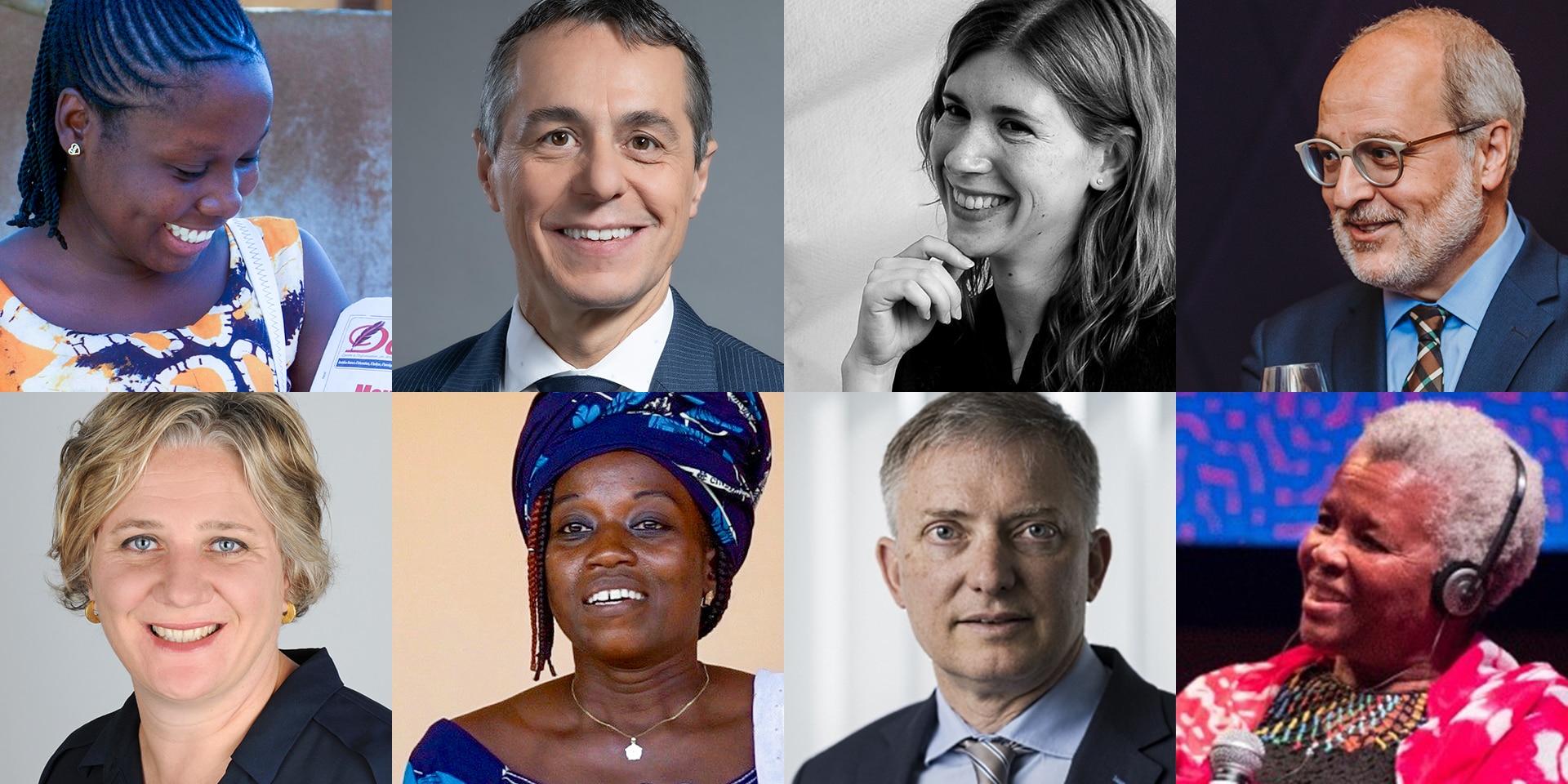
Profiles of eight women and men associated with the FDFA who are committed to women's rights © FDFA
8 March is International Women's Day – an opportunity for Switzerland to highlight its commitment to women's rights in its foreign policy. And to recognise the contribution of eight women and men working around the world, within the FDFA or in partnership with Swiss development aid, to defend gender equality and promote women's rights.
1 | Maroufatou Oladjidé, Benin
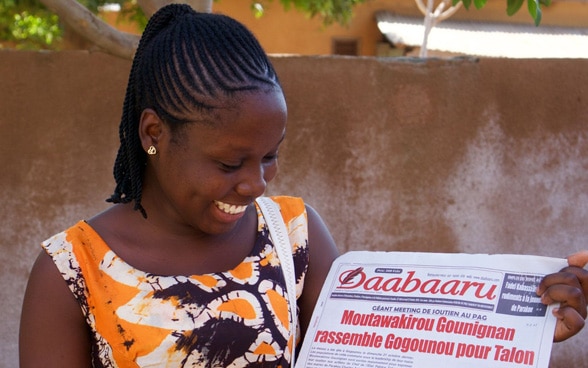
Maroufatou Oladjidé is a journalist working as sales director for the Beninese newspaper Daabaru. She is the only woman and the youngest member on the board of directors. To develop her leadership skills, she participated in the women's capacity-building programme RECAFEM run by the SDC in Benin.
"I used to have a hard time expressing my opinions, especially when dealing with men. Now I'm able to assert myself in meetings and I can speak out whenever I disagree," explains the young woman, who now plans to run in the next communal elections.
2 | Alexandre Fasel, London
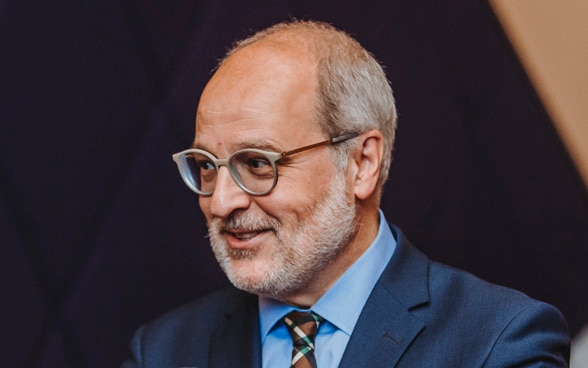
"Men enjoy certain privileges," says Alexandre Fasel, the Swiss ambassador in London, "but many of us just don't realise it." The real eye-opener for him was an event he once attended where the topic of discussion was equal rights – and only men were invited to speak. After this moment of enlightenment, Fasel, head of the Swiss mission in Geneva at the time, became a 'Geneva Gender Champion'. In this role, he campaigned as part of the UN initiative for, among other things, gender-balanced panels.
These days Fasel has his sights on big data and artificial intelligence – and once again sees a lack of awareness, with many of the machine learning algorithms built using 'male' parameters. For example, if it is primarily men in management positions, the algorithm 'learns' that men are more successful. And this reduces women's chances in the recruitment process. Fasel believes that another moment of enlightenment is now needed to promote equal rights in big data.
3 | Sabine Rosenthaler, Amman
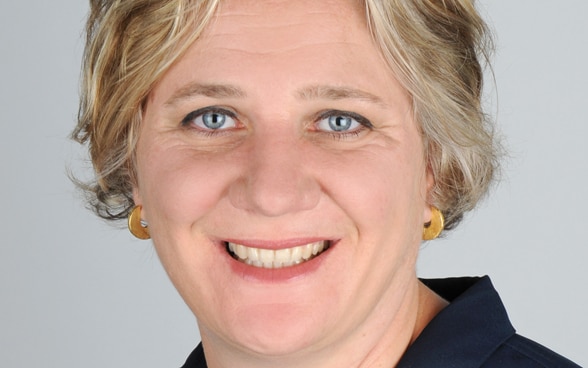
Sabine Rosenthaler is Deputy Head of Cooperation at the Swiss embassy in Amman. She co-pilots Switzerland's cooperation programme in the region affected by the Syrian crisis. She is also responsible for the Swiss-led programme in Jordan, with a staff of nine, including seven women.
Sabine has a humanitarian background. In this traditionally male-dominated environment, women are now playing an increasingly prominent role. As a manager, she supports women in their career development. "I've never been particularly militant. For me, it's only natural that I should support women working in cooperation, development aid and humanitarian aid. I encourage them to join the teams. I try to lead the way, to set an example, and to support the development of new skills. The challenges vary depending on the local culture. The aim is for everyone, men and women, to do their part towards the common goal of helping those most in need."
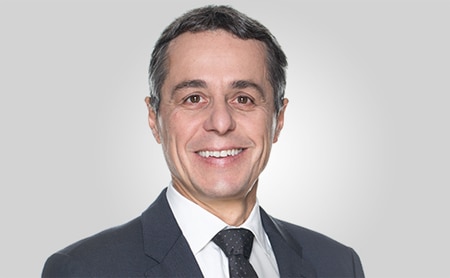
Head of Departement Ignazio Cassis © Beat Mumenthaler
4 | Federal Councillor Ignazio Cassis
International Women's Day is a reminder of the challenges that remain in terms of women's rights and world peace. Working on this is a continuous task, says Federal Councillor Ignazio Cassis. This is why Switzerland strengthens the status of women through projects in different countries and at multilateral level. Mr Cassis gives the FDFA good marks: he notes that with women making up 50,2% of its staff, the department is a leading example of gender equality in action.
This is also reflected in the top management: with the arrival of Particia Danzi as the new SDC Director-General, four out of seven FDFA directorates will be headed by women from May 2020.
5 | Rachel Gasser, Brussels
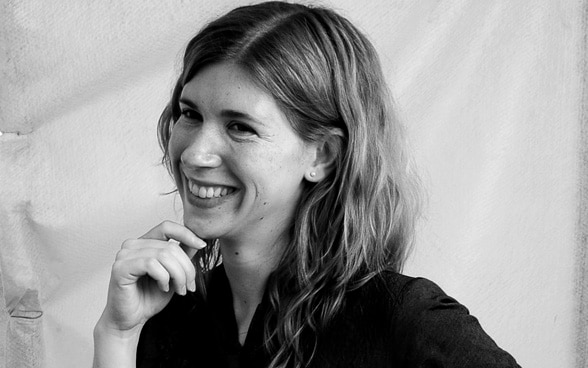
Rachel Gasser works as an adviser in the office of the Special Representative for Women, Peace and Security at NATO's Human Security Unit (HSU). She has worked for 15 years on issues related to peacebuilding and security policy, always mindful of the important contributions and specific needs of women.
Her current remit includes the systematic integration of men's and women's different interests in all NATO projects and processes, as well as the coordination of the associated working groups (Gender Task Force). In terms of content, she works in areas such as the prevention of human trafficking but also the development of early warning systems that include a gender perspective on peace and security issues.
Gasser's work contributes to NATO's implementation strategy on women, peace and security, among other things. However, her specific expertise also supports UN Security Council resolutions internationally and helps to implement them more effectively around the world, especially in countries where NATO is on the ground.
Overall, she believes that Switzerland's commitment is essential to achieving the goals set out in UN Resolution 1325 and says that Switzerland's voluntary national contributions to NATO and secondments such as hers – but also support through forums for dialogue forums between civil society and policymakers – are particularly valuable contributions to the agenda of women, peace and security.
6 | Sizani Ngubane, South Africa
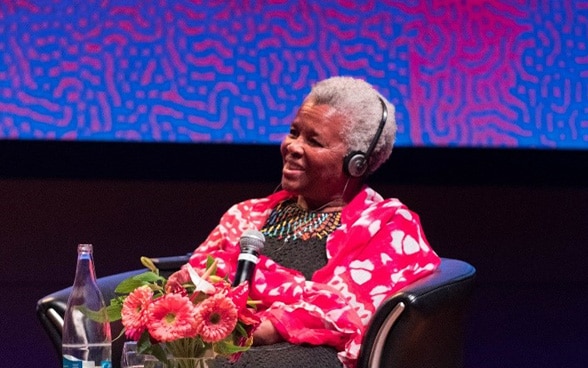
Sizani Ngubane is a human rights defender from South Africa who has dedicated her life to promoting gender equality and fighting for women’s and indigenous people’s rights. In South Africa, women face different forms of discrimination, the worst expression of which is widespread gender violence. In rural communities, women frequently have their land expropriated and are deprived of access to education and justice. As founder of the Rural Women’s Movement in 1998, Sizani Ngubane has fought successfully for over 40 years for the recognition of their rights. She was one of three women finalists for the 2020 Martin Ennals Award for Human Rights Defenders.
Each year, the Martin Ennals Foundation rewards human rights defenders from around the world who distinguish themselves by their strong commitment to promoting human rights – often at the risk of their own lives. As part of its human rights defenders policy, Switzerland has been supporting the Martin Ennals Award since 2004. Switzerland is committed to increasing the visibility and recognition of women human rights defenders to ensure that they can express themselves freely, without fear of reprisals against them, their families and communities.
7 | Markus Seiler, Bern
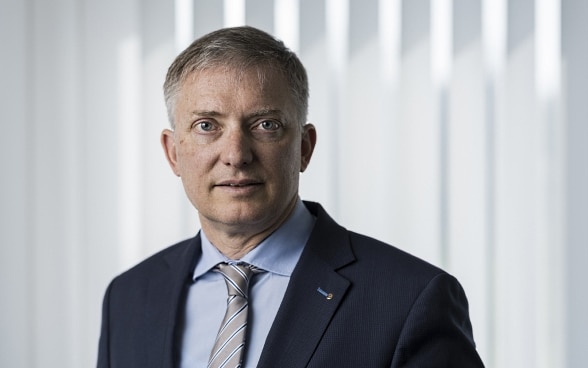
Over 5,000 people are working in Switzerland and around the world to realise Switzerland's foreign policy objectives. Defending women's rights within the Department of Foreign Affairs itself is a key aspect of personnel management.
Markus Seiler heads the FDFA's General Secretariat. He explains: "For 10 years now, the FDFA has actively sought to promote equal opportunities. Today the proportion of women in top-level management is 26%, at other management levels 46%. We want to make it easier for both mothers and fathers to reconcile the demands of work and family life. We are committed to an inclusive and respectful working environment in which everyone has the opportunity to reach their full potential with dignity." 8| Nafissatou Amadou, Benin
8 | Nafissatou Amadou, Benin
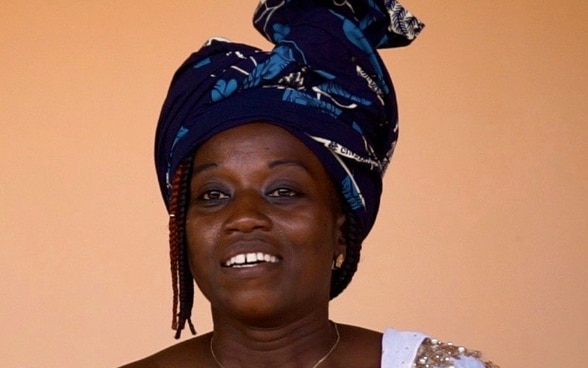
"I came to realise that you can use politics to develop your community and still stay true to your principles. The time has come for women to assert themselves – gone are the days when their place was only in the home." Nafissatou Amadou, a politician in Parakou, Benin, received training as part of the women's capacity-building programme RECAFEM run by the SDC in Benin.
She learned how to speak in public, assert herself, lead public discussions and develop her leadership skills. Today she is a trainer and a local politician. "I hope to inspire other women and pave the way for them, but also encourage men to support their wives in their political engagement," she says.
How does Switzerland support women's rights?
- The FDFA has incorporated all foreign policy activities related to the promotion of women's rights into its strategy on gender equality and women's rights. Gender equality is also an important pillar of Swiss foreign policy. On the basis of its foreign policy strategy, Switzerland promotes the rights of women.
- 2020 marks the 25th anniversary of the Beijing Declaration and Platform for Action. Adopted in 1995 by 189 countries, including Switzerland, at the World Conference on Women in China, the Platform for Action is considered the most progressive roadmap for the empowerment of women and girls worldwide. This year the international community will assess the progress made over the past 25 years. · In addition to its involvement in the Human Rights Council and the UN General Assembly, Switzerland has traditionally played an active role in the Commission on the Status of Women (CSW).
- As part of its international cooperation (IC), Switzerland develops and supports a large number of projects worldwide to promote women's rights and gender equality. The Swiss Agency for Development and Cooperation (SDC) systematically incorporates the gender dimension in all its activities.
